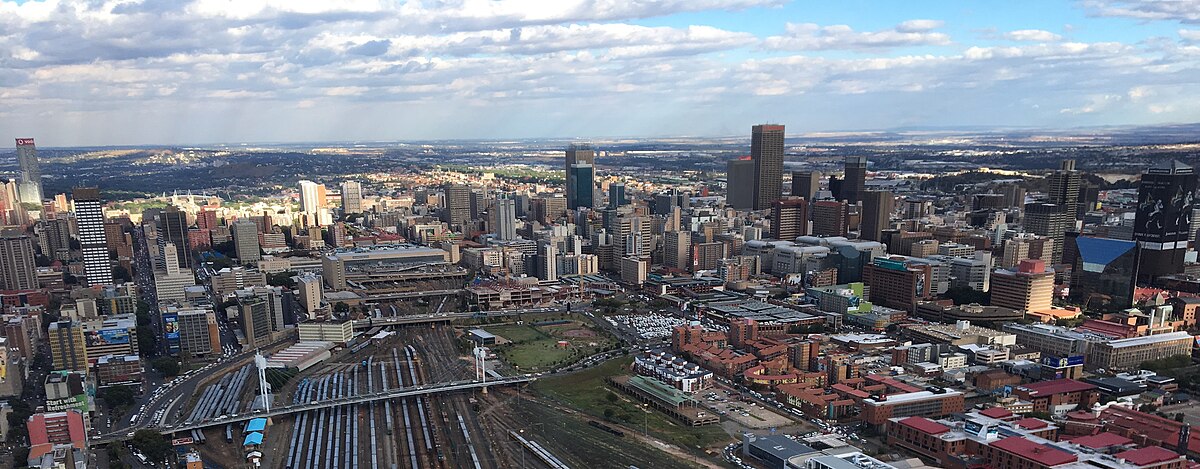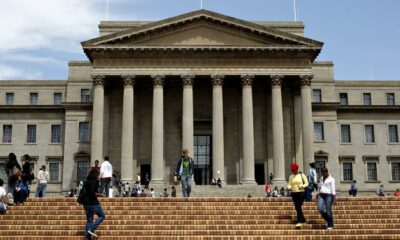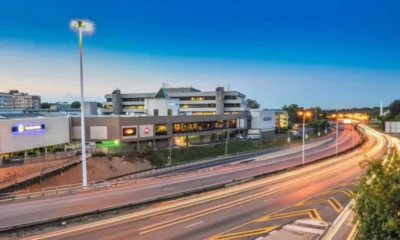News
Once Africa’s Beacon: Why Johannesburg’s Golden Glow Is Fading

The Golden Dream That Faded
In 1886, gold was struck in the Witwatersrand ridge, and Johannesburg sprang up almost overnight. It became a magnet of opportunity, wealth, and migration. The “City of Gold” would rise as a hub of promise in southern Africa.
Yet today, the lofty ambition has given way to quiet grief. The skyline still towers, but many of its structures show peeling paint, cracked facades, and broken windows. Instead of welcoming lights, some parts of the city now greet visitors with the smell of sewage spilling into streets. Food vendors wade past sludge. Commuters dodge potholes the size of craters.
How did Johannesburg slip from Africa’s shining icon to a city struggling to keep the basics running?
When Infrastructure Is the First to Fall
It did not happen overnight. But over the years, the city’s plumbing, electrical grid, roads, and sanitation systems have degraded under sustained neglect. In some announcements, the city says it has committed over R110 billion over ten years for infrastructure upgrades, including pipe replacement, building reservoirs, and microgrids in informal settlements. Yet many residents say they haven’t seen the results. Politics, turnover, delays, and competing priorities: they’ve all diluted the impact.
Today, leaks consume nearly 40 percent of Johannesburg’s water supply before it reaches people. Rivers run raw sewage. Buildings that were once landmarks now house informal occupants or lie abandoned. The prestige of the city centre is under assault.
Leadership, Loyalties, and Letting Go
Politics plays a big role in the decline. Analysts argue that the city has been treated as a revolving door rather than a long-term project.
One expert observed that many past leaders saw Johannesburg not as a place to tend, but as a stepping stone. Some eventually relocated to suburbs or coastal towns, like Cape Town and Bantry Bay. Their focus was on extraction, not stewardship.
A commentator noted that Johannesburg’s crisis is really a crisis of vision. The rot is not just in pipes but in the idea that managing the city well isn’t someone’s true calling. Where technical skill once mattered, loyalty and political favour now too often took precedence.
Collapsing Revenue, Flight of the Paying Class
One source of trouble is revenue. As middle-class residents and businesses decamp to Sandton, Roodepoort, or other nodes, they take their rates and taxes with them. The city loses not just money but also political influence. Informal settlements swell, while the tax base shrinks. The system that once balanced high-value downtown pockets now buckles under the weight of nonpayment, service failure, and distrust.
Gauteng officials say that it’s more than mismanagement or corruption, though those are real issues. It’s the collapse of a financial model built decades ago for a different city scale and shape. An influx of people, sprawling nodes, and new commercial centres like Waterfall City are reshaping the urban geometry, pulling energy and revenues away from the inner core.
Voices from the Street
Power, water, and toilets: many residents now depend on luck or luckier neighbours. In the CBD, it is common to see people carrying buckets, fetching water from trucks, and waiting for the supply to resume. One man in his 60s, who drives taxis through Joburg, points out that he has to dodge potholes every day. He wonders whether any leader still cares about the paths between houses.
Some say the government no longer merits trust. Reliance on protest works, but only when systems remain. Without functional service infrastructure, protesting becomes survival, not civic engagement.
A City in Ruins, Yet Not Without Hope
Even at its most broken, Johannesburg has resources few cities match: economic heft, global connectivity, a dynamic creative class, and a sprawling but spirited population. Experts say a turnaround is still possible if there is leadership that dares to act, courage to cut ties with corrupt systems, and the humility to work with community energy.
Repairing pipes, renovating buildings, stabilising revenue are steps. But more must come: rebuilding confidence, nurturing care for public space, and restoring dignity in the inner city. That’s not just about management. It’s about moral commitment.
Johannesburg’s collapse is a cautionary tale: when ambition lags in favour of convenience, when decay is treated as acceptable, the city you built will start to slip past your grasp. But the gold is still there. If people step in, with purpose, with heart, perhaps Joburg can rise, less as a gleaming fantasy, more as a resilient home again.
Follow Joburg ETC on Facebook, Twitter, TikT
For more News in Johannesburg, visit joburgetc.com
Source: IOL
Featured Image: en.wikipedia.org



























